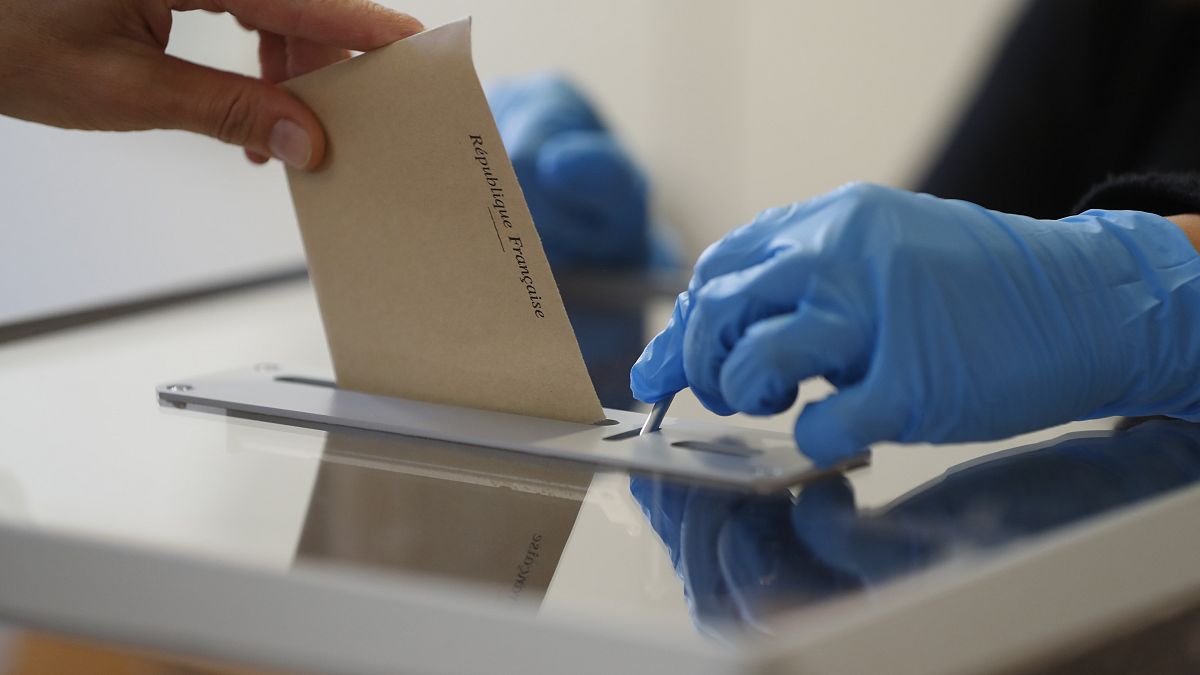France's data privacy watchdog says it's examining the Tinder-style app that helps voters decide what candidate to choose.
A new French app called Elyze that matches users with the presidential candidate offering a programme most similar to their own ideals has been in the spotlight over growing ethical concerns.
The application has been downloaded over 1.2 million times in just over two weeks and has risen to the top of the download charts in the country.
What is Elyze?
Presented as a Tinder for politics, Elyze (a play on the word Elysée, the official residence of the President) asks users questions about subjects such as the environment, economy, and education sector. The app uses the information to indicate which candidate most aligns with the user's views in the upcoming April election.
The creators of the app have said that the goal of Elyze is to fight low turnout and voter abstention among younger people.
A recent Ifop poll revealed that 59% of 18-30-year-olds do not plan to vote in the first round of the upcoming election.
What are the concerns over Elyze?
Due to some technical bugs, the app has fuelled numerous conspiracy theories online. One of the issues that users brought up was that the current President Emmanuel Macron was placed first even if he tied with multiple other candidates.
This has raised questions about who was behind the app and whether it is politically biased.
But the founders of the app released a statement saying that this was a technical bug that is being fixed.
“Neutrality is our driving force, no candidate benefits from any preferential treatment,” the app's team tweeted.
But there are also fears over the ethical aspect of the data that the app stores and how it uses it. The users can choose whether Elyze collects data on them such as their gender, postal code and previous voting preferences.
But this sort of information can be enough to say a lot about where and how someone lives and who they are likely to vote for. One analyst described Elyze as “holding one of the most powerful databases in French political history -- that some parties would pay a lot of money to have.”
Elyze also sparked memories of the Cambridge Analytica scandal, when millions of Facebook users had their data collected without consent for political advertising purposes to sway votes during Brexit and during the 2016 US presidential election.
How has Elyze reacted?
Elyze promises that none of this data will be sold to political parties or any other political campaign teams. But French data protection watchdog, Cnil, is to check whether Elyze complies with the regulations on this "sensitive data."
The watchdog has said that for apps like this, users must clearly consent to their data being collected, otherwise it is illegal.
One way to get around this restriction could be to make the data anonymous. But this might not be possible, since a postal code and a date of birth could identify a person quite easily. It is now up to the Cnil to study the case, and possibly impose changes to the application.
But several data analysts have said that Elyze should be more transparent about how the app works and shares its code. One developer that managed to hack into the app within a few hours and add his name to the candidate list, has tweeted about the importance of transparency of such apps during events such as elections.
